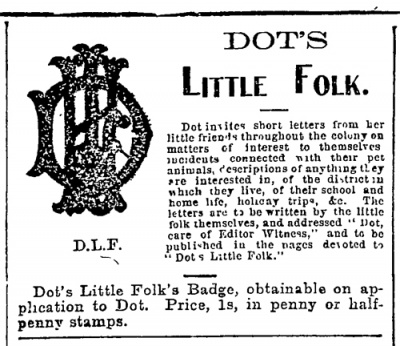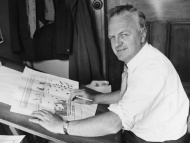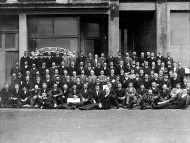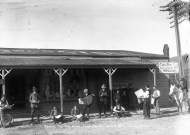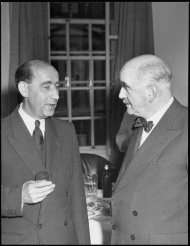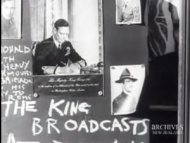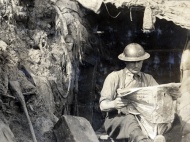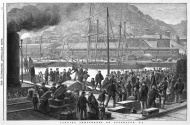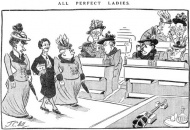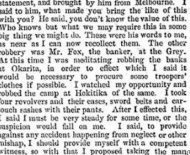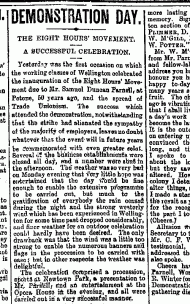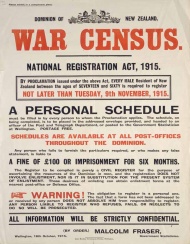Events In History
-
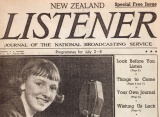 30 June 1939First issue of New Zealand Listener published
30 June 1939First issue of New Zealand Listener publishedThe New Zealand Listener soon expanded beyond its original brief to publicise radio programmes to become the country’s only national weekly current affairs and entertainment magazine. Read more...
-
 24 June 1905New Zealand Truth hits the news stands
24 June 1905New Zealand Truth hits the news standsAt its peak in the 1950s and 1960s, New Zealand Truth prided itself on being ‘the champion of the little person and the scourge of corruption and scandal in high places’. Read more...
-
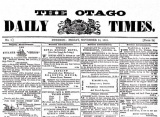 15 November 1861First issue of Otago Daily Times published
15 November 1861First issue of Otago Daily Times publishedDunedin became the first New Zealand town with a daily newspaper when the first issue of the Otago Daily Times was published. Read more...
-
 25 May 1861The Press goes to press
25 May 1861The Press goes to pressPublished from a cottage in Montreal Street, the first edition was a six-page tabloid which sold for sixpence. Read more...
-
 18 April 1840Samuel Revans prints first newspaper
18 April 1840Samuel Revans prints first newspaperThe first newspapers published in New Zealand were printed by Samuel Revans a month after he arrived in Port Nicholson (Wellington). Read more...
Articles
Parliament's culture and traditions
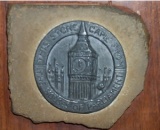
Explore Parliament's rich history and its colourful culture and traditions.
- Page 2 - Parliament in cartoonsFor centuries, politics and Parliament have been the subject of public comment, satire and humour. Almost since the beginning, New Zealand's Parliament has been portrayed through
Parliament's people
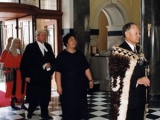
Today there are usually between 120 and 123 MPs in New Zealand's Parliament, which is a far cry from the 37 who met for the first time in Auckland in 1854.
- Page 8 - Reporting and broadcastingThe reporting of Parliament has always been an important part of the parliamentary
Armistice Day
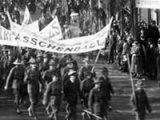
After four terrible years, fighting in the First World War finally ended with the signing of an armistice between Germany and the Allies on 11 November 1918. New Zealanders celebrated enthusiastically, despite having recently celebrated the surrenders of the three other Central Powers and the premature news of an armistice with Germany.
- Page 3 - False armisticeOn 7 November 1918 the Prime Minister assured the public - following rumours to the contrary - that the government was not holding back news of a German surrender. The next
Biographies
-
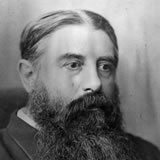 Vogel, Julius
Vogel, Julius
Premier Julius Vogel's great plan was to borrow heavily to build infrastructure and to lure migrants. It was controversial, but the money and migrants stimulated the economy and created a viable consumer market for producers.
Read more... -
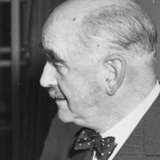 Low, David Alexander Cecil
Low, David Alexander Cecil
David Low was a high-profile cartoonist who, at his height, had his work banned across Germany for his attacks on Adolf Hitler. His work was well-known around the world, and in 1962 he accepted a knighthood.
Read more... -
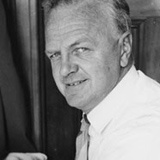 Lodge, Nevile Sidney
Lodge, Nevile Sidney
Nevile Lodge was a well-known cartoonist, who had a long association with Wellington’s Evening Post. Specialising in depictions of New Zealand’s rugby, racing and beer culture of the 1950s and 1960s, he was made an OBE in 1981.
Read more...
Related keywords
- WW1
- children
- otago region
- child welfare
- catholic
- cartoon
- nevile lodge
- 1913 strike
- wellington city
- trade unions
- tokomaru bay
- david low
- WW2
- home front
- armistice
- influenza pandemic
- germany
- flags
- training camps
- printing
- parliament
- broadcasting
- journalism
- press
- radio broadcasts
- western front
- trenches
- passchendaele offensive
- disease
- artillery
- weapons
- tunnelling
- media
- john norton
- new zealand truth
- new zealand listener
- publishing
- christchurch
- dunedin
- julius vogel
- immigrants
- lyttelton
- immigration
- women in politics
- MPs
- elizabeth mccombs
- crime
- burgess gang
- public holidays
- labour day
- samuel parnell
- transport
- economy
- premiers
- public works
- maori land
- conscription
- poster
-
Main image: Letters to Dot
Letters written to the children's column 'Dot’s Little Folk' in the Otago Witness reveal the personal ways in which young people responded to the war.

